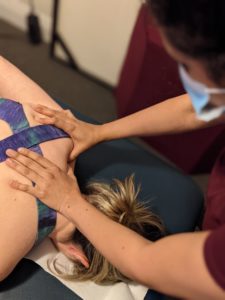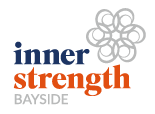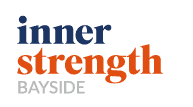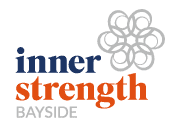What to expect from your physio appointment
If you have never seen a physio or allied health practitioner before or are simply new to our clinic, you may be unsure of what to expect from your initial physio appointment. We understand that this can be a bit of a daunting process for some and we want to make sure that you leave Inner Strength Bayside feeling as though you have been heard and that you have a clear plan of how to manage your injury or condition.
We understand that you may be seeking physiotherapy services for many different reasons whether this be for pain management, guidance for self management strategies, general injury prevention advice, exercise prescription or maybe you are not sure what we can do for you.

We have put together this short article to help you understand what to expect when you see one of our physios for the first time.
Getting to know you and what brought you into our clinic
At your initial consult, your physiotherapist will ask you a range of questions about why you are seeking physiotherapy and your specific injury or concern. These questions and your answers are extremely important to establish a clear history which guides further assessment and management plans.
These questions will include things such as:
- What brought you into the clinic (pain/injury/chronic condition/other)?
- How long have you had the pain/injury?
- What might have happened around this time or a specific event that may have caused the injury?
- What sort of activities/movements make it better/worse?
- What activities are important to you (e.g. looking after grandchildren, jogging or playing tennis)?
- What are you expecting from physio today?
- We will also discuss some short and long term goals
Assessing your movement
From the information that you provide above the physio will determine what physical assessment is required to gain further information about your injury to aid with a diagnosis, appropriate treatment and a management plan.
Ideally we would like to be able to see the body part that we are needing to assess, so try to wear clothing that would enable this (e.g. if your knee is the problem try to wear shorts or a singlet if your shoulder is the injured body part).
Your assessment may include:
- Certain movements in standing, sitting or lying down.
- Muscle strength and flexibility.
- Nerve Tests.
- Joint mobility.
- Palpation of associated joints, muscles, ligaments and bones that may be tender to touch.
During this assessment we may ask you to perform movements that may be painful. It is important that we see the movement that you can perform but we will not ask you to push through that pain and will only ever ask you to ‘move your arm as high as is comfortable’ and ‘stop when it becomes painful’. It is important that you provide feedback to your physio during this assessment if you experience discomfort.
Treatment
Following the physical assessment we will discuss with you what treatment options we would recommend based on our findings and your goals that we discussed earlier in the session. Your treatment may include:
- Hands on manual therapy: joint mobilisation, massage, dry needling.


- Exercise: stretches, strengthening exercises or pilates based exercises on a mat or equipment.
- Home Exercise prescription: rarely would you leave the clinic without between 1 and 3 home exercises. We find that patients who do their exercises tend to get the best outcomes. We will write down, take photos of or even film your home exercises so you are confident with what you need to do to achieve your goals.
- Education and advice: to help you understand more about your injury or condition and help you avoid things that may aggravate your pain, ideal sleeping position, pillows and other self management strategies.
After your treatment you will ideally feel better but you may feel tender for the following 24 hours but this will depend on the treatment and your individual response.
Plan for the next few weeks
Following your treatment your physio will discuss with you a treatment plan, follow up consults and some steps that may be needed to achieve your goals. They will also write down for you any advice and exercises that they have given you to help you self manage at home.


